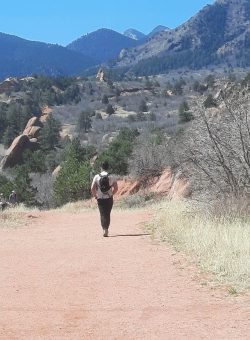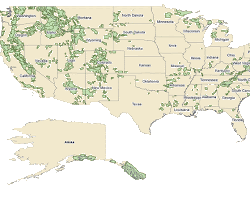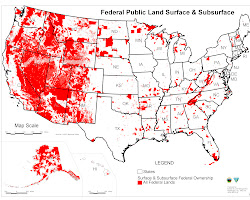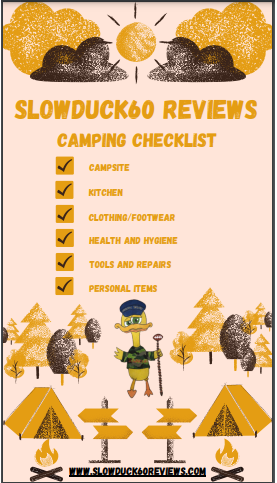Backpacking on a Budget : How to Save Money on Your Next Adventure

Backpacking is a great way to experience the outdoors and disconnect from the hustle and bustle of everyday life. However, it can also be an expensive hobby. If you’re wanting to go backpacking on a budget, there are a few things you can do to save money on your next backpacking trip.
1. Choose the right gear
One of the biggest expenses when backpacking is gear. There are a lot of expensive backpacking gear out there, but you don’t need to spend a fortune to get the essentials. There are plenty of affordable gear options available, especially if you’re willing to buy used gear.
When choosing backpacking gear, it’s important to consider the following factors:
Weight: Backpacking gear can be heavy, so it’s important to choose light weight gear. This will help you save weight on your backpack, which will make your hike easier.
Durability: Backpacking gear needs to be durable, especially if you’re going to be using it in harsh conditions. Look for gear that is made from high-quality materials and that has been well-reviewed by other backpackers.
Functionality: Backpacking gear needs to be functional. Make sure you choose gear that has all the features you need for your trip, such as a rain fly for your tent or a stove for cooking food.
2. Plan your meals
Another way to save money on your backpacking trip is to plan your meals ahead of time. This will help you avoid eating out at restaurants, which can be expensive. There are a few different ways to plan your meals for a backpacking trip.
Pack dehydrated or freeze-dried meals: Dehydrated or freeze-dried meals are a convenient option for backpacking. They are lightweight and easy to prepare, and they provide all the nutrients you need.
Cook your own meals: If you’re on a tight budget, cooking your own meals is the way to go. There is a variety of lightweight backpacking stoves and cookware available, and you can find recipes for backpacking meals online or in cookbooks.
Pack snacks: Snacks are a great way to save money on your backpacking trip. They are lightweight and easy to carry, and they can help you stay energized on the trail. Some good backpacking snacks include trail mix, granola bars, nuts, and fruit.
3. Choose your destination wisely
The cost of backpacking can vary depending on the destination. Some national parks and wilderness areas charge fees for entry, and there may also be camping fees. If you’re on a budget, it’s a good idea to choose a destination that is free or has low fees.
There are also free or low-cost backpacking destinations in the United States. Some of these destinations include:
National forests: National forests are a great option for free or low-cost backpacking. There are thousands of national forests in the United States, and most of them offer free or low-cost camping.
Wikipedia: National forests in the United States

Wilderness areas: Wilderness areas are another great option for free or low-cost backpacking. Wilderness areas are protected areas of land that have limited development. This means that there are no fees for entry or camping, and you can enjoy the quiet of the wilderness.
USDA: Wilderness areas in the United States

BLM land: Bureau of Land Management (BLM) land is another great option for free or low-cost backpacking. BLM land is a public land that is managed by the federal government. There are no fees for entry or camping on BLM land, and you can enjoy a variety of outdoor activities, such as hiking, camping, and fishing.
Wikipedia: BLM land in the United States

4. Hike shorter trails
If you’re on a budget, it’s a good idea to hike shorter trails. Shorter trails require less gear and less time, which can save you money.
When choosing a trial, consider the following factors:
Length: Shorter trials are a good option for backpackers on a budget. Trails that are less than 10 miles long are a good place to start.
Elevation gain: Elevation gain can also affect the cost of a backpacking trip. Trails with less elevation gain are easier to hike and require less gear.
Trail popularity: Popular trails can be more expensive than less popular trails. This is because popular trails are more likely to have fees for entry or camping.
5. Hike during the off-season
If you’re on a budget, you can save money by hiking during the off-season. This is because typically fewer people are hiking during the off-season, so there are fewer fees for entry or camping.
The off-season for backpacking can vary depending on the destination. The off-season is during the winter or shoulder seasons (spring and fall). However, some destinations may have an off-season during the summer months.
Here are a few tips for hiking during the off-season:
Do your research: Before you go, do your research to make sure that the trail you want to hike is accessible during the off-season. Some trails may be closed during certain times of the year due to weather conditions or other factors.
Be prepared for the weather: The weather can be unpredictable during the off-season, so be sure to pack for all types of conditions. This includes warm clothes, rain gear, and sunscreen.
Let someone know where you’re going: Before you go, let someone know where you’re going and when you expect to be back. This way, if you don’t return on time, someone will know to look for you.
Be aware of your surroundings: Be extra careful when hiking during the off-season. There may be fewer people around to help you if you get injured or lost.
By following these tips, you can enjoy a safe and enjoyable backpacking trip even if you’re on a budget.
Here are some additional tips for backpacking on a budget:
Volunteer your time : Some organizations offer free or discounted backpacking trips in exchange for volunteer work. This is a great way to save money and give back to the community.
Split the cost with friends : If you have friends who are also interested in backpacking, you can split the cost of gear and transportation. This can save you a lot of money.
Borrow gear : If you don’t have all of the gear you need, you can borrow it from friends or family. This is a great way to save money without sacrificing safety.
Camp in dispersed areas : Dispersed camping is camping in areas that are not designated campgrounds. This is a great way to save money on camping fees.
Pack light : The lighter your pack, the easier it will be to hike and the less money you will spend on gear.
Be frugal : When you’re backpacking, it’s important to be frugal with your spending. This means cooking your own meals, packing snacks, and avoiding buying souvenirs.
By following these tips, you can save money on your next backpacking trip without sacrificing safety or enjoyment.
Here is a related article: Backpack for Hiking: Choosing the Right One


Subscribe to our newsletter.
As a Thank You, check your inbox for our
FREE Camping Checklist
This checklist will ensure you and your family packed everything needed for a safe and enjoyable camping trip.
